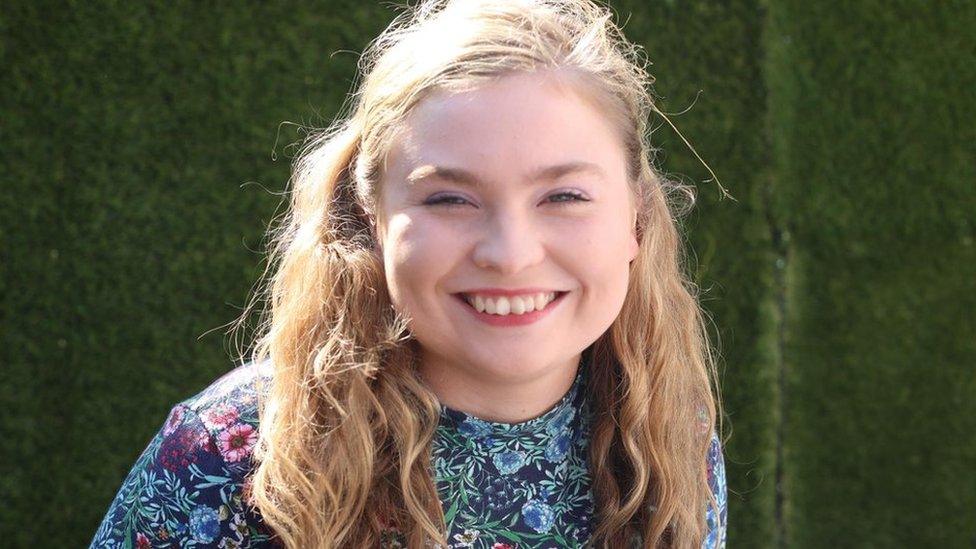The surgeon who said nipples were a 'faff'
- Published
Life as a disabled person can sometimes be quite different and difficult, but amid awkwardness there is humour.
The following is an edited version of a sketch by Janine Hammond, whose life changed after two rounds of triple negative breast cancer. She performed this true story for the BBC at the Edinburgh Fringe in 2019 where the theme was Lost and Found.
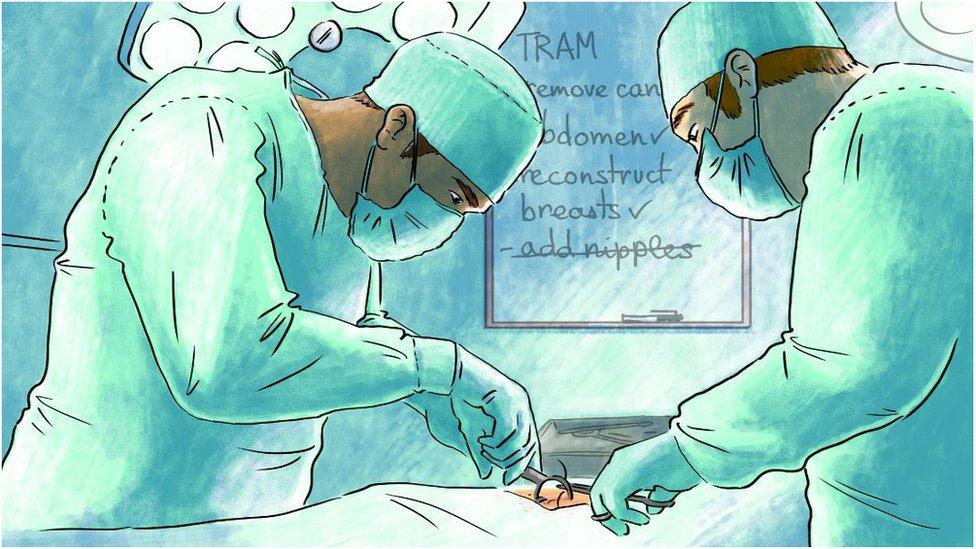
I've got a confession to make - I've lost my nipples.
Very careless. Very irresponsible of me. And it's really annoying because nipples are great. They feed your babies. They're little pleasure domes and they warn you when you need to wear a coat.
Personally, I prefer the whole thing - the fleshy bit plus the nipple. The traditional combo.
Confession number two - I've lost both of my breasts to cancer.
I haven't got prosthetic breasts or implants, instead I've got what they call flaps - Tram flap reconstructions.
As an ex-nurse I know the medical world loves acronyms - we haven't got time to say the big words. Tram stands for Trans rectus abdominis muscle.
Basically, everyone has two of these and they form part of your six-pack. Those two muscles have now been moved from my abdomen up into my chest. Weird, I know.
The operation requires two surgical teams. The top team take your breast off, including the cancer. Then the other team split you from hip-to-hip and take the whole front flap of your abdomen off and then basically pull the muscles up, with all their blood supply and nerve endings, and use the fat and tissue to make new breasts.
They also make you a lovely new belly button. It's amazing.
The first time I had breast cancer was in 1997. I was 32, my kids were little and I'd just started a new job, but life's like that, isn't it?
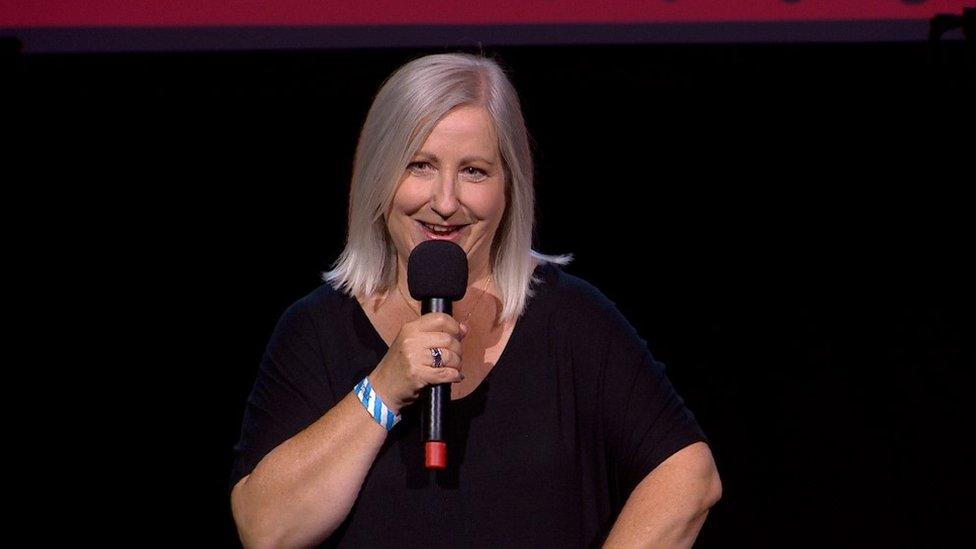
In 2012, I found myself back in the "bad news room" at the hospital. They don't call it that, but a lot of cancer centres have a room that's less clinical than others with comfy sofas and nice pictures on the walls.
I knew what was coming.
Sure enough a surgeon bounded in: "It's back!" he said.
"Thanks mate," I thought.
He said he'd remove both breasts and do the TRAM reconstruction in one, 12-hour operation.
"What about nipples?" I asked.
"Nipples? Oh, they're a faff," replied the surgeon.
"A faff?" I said. "So you're going to spend 12 hours slicing and dicing me like the Bride of Chucky - and then you put me together and say nipples are a faff?"
"Well I can do them, but you know..."

Storytelling Live: Lost and Found
Reece was one of seven people with a disability or mental health problem to perform a story on the theme of lost and found as part of BBC Ouch's storytelling event at the Edinburgh Festival Fringe - hosted by Chris McCausland.
You can watch the programme on BBC iPlayer.
Here is another story from the event that you might like:
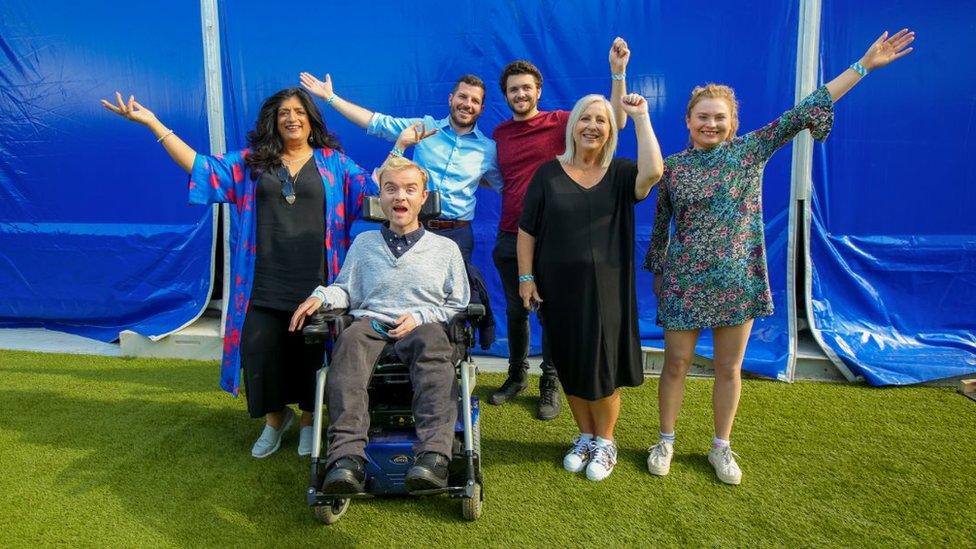

The female registrar took me aside.
"The thing with the nipples is that the male surgeons don't always appreciate how women might feel about the new exaggerated ones they create," she said.
"They don't tend to warn you that they'll really stick out to begin with, to allow for when they flatten out a couple of years later. I'm not sure how you'd feel about always being... pointy."
"Pointy?" I thought. "Oh God, I can't be pointy."
I wondered about having a 3D tattoo. My local tattoo artist does a really good job but only has one big workroom - can you imagine the next client arriving as you're having a new nipple tattooed?
So, the registrar gave me some prosthetic nipples instead. You literally just stick them on.
I have never worn them... on my breasts.
What if they came unstuck and you're talking to someone and they're like, "Oh you've got a nipple on your neck." That would be awful.
The only time I've ever worn my nipples is in the middle of my forehead to do my David Bowie circa Ziggy Stardust impression to cheer myself up.
The recovery from the operation took a few months and I was left with a few weird issues.
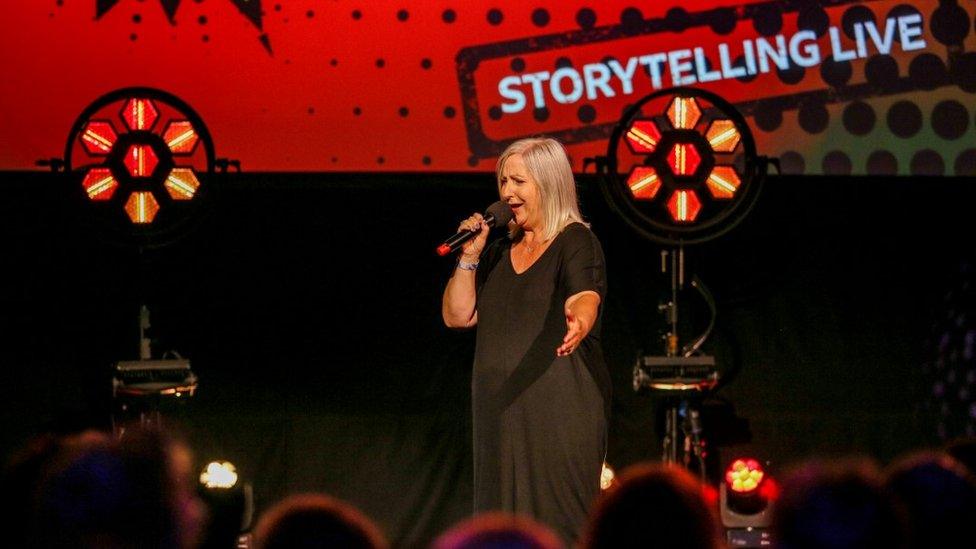
It feels like I'm wearing a corset all the time and, because the muscles in my chest have been moved up into my breasts, I can't sit up if you lie me flat.
I also had a different type of chemo this time - FEC. Another initialism, made up of a variety of drugs - 5FU, epirubicin, cyclophosphamide.
Fun fact. Epirubicin changes the colour of your urine. It only lasts for about 48 hours but it goes from a deep Portuguese Rose to a pale Provencal. It's great fun for family and friends.
As my wounds started to heal, I noticed that my right breast was bigger than my left. The surgeon agreed so I had an operation to amend the right side.
Then the left breast was bigger than the right. So I had that amended too.
But re-creating nipples was still considered a faff.
To help with the weird nerve and joint pains I also experienced, the pain clinic suggested mindfulness.
I tried, but meditating with 10 other people in what was effectively a storeroom just didn't work for me, so I started writing instead and got a place on a playwrights programme.
I wrote a monologue about a woman with breast cancer who'd had my operation but she was single and had to reveal herself every time she started a relationship.
The play travelled a bit and even raised money for cancer research which I'm very happy about.
What I'm not happy about are my nipples.
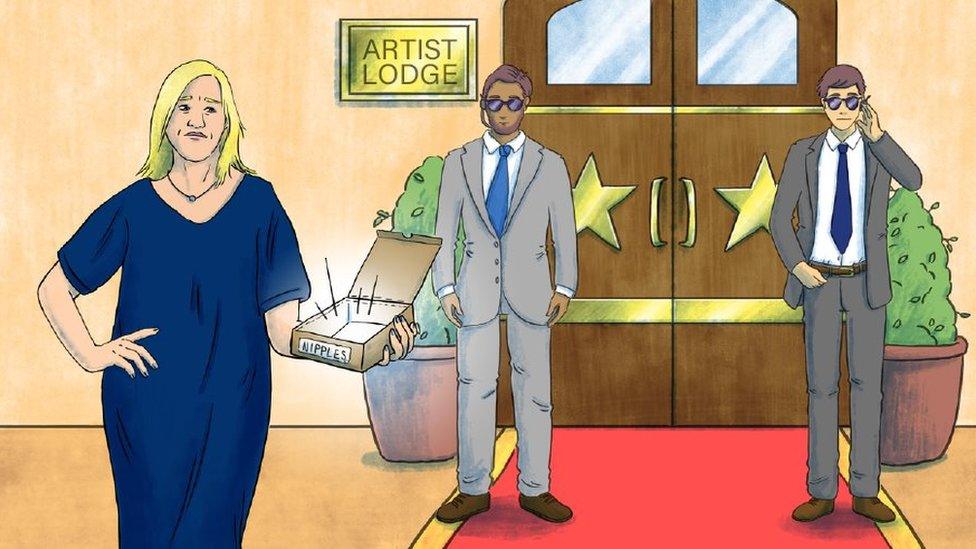
As part of the performance, my lovely actress puts a nipple in the middle of her forehead to do her best Ziggy Stardust.
But it turns out theatres don't stock prosthetic nipples. So my very own nipples get supplied to the actresses.
It's meant a very exciting chapter in my life because I now get emails saying: "Janine, please can I have your nipples?"
I rather like to open those emails on a packed train when I know someone is reading over my shoulder.
To be honest, I'm getting a bit resentful of them. My nipples are appearing in theatres without me. They're having a life of their own.
So when I said at the start: "I've lost my nipples". I have.
I've lost them - first to cancer - and then to the fickle world of show business.
From Storytelling Live 2018, you may also like to read:
For more Disability News, follow BBC Ouch on Twitter and Facebook, and subscribe to the podcast.

- Published23 August 2019
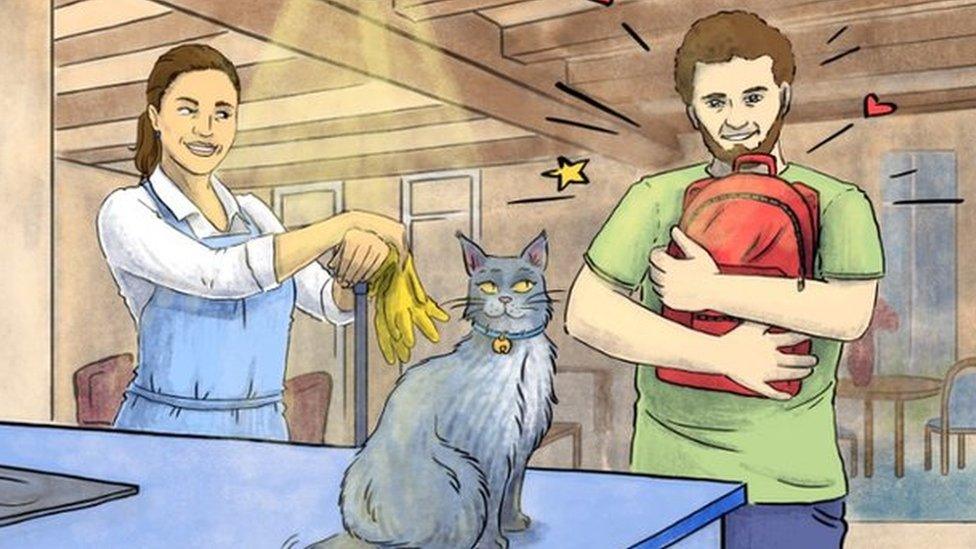
- Published21 August 2019
